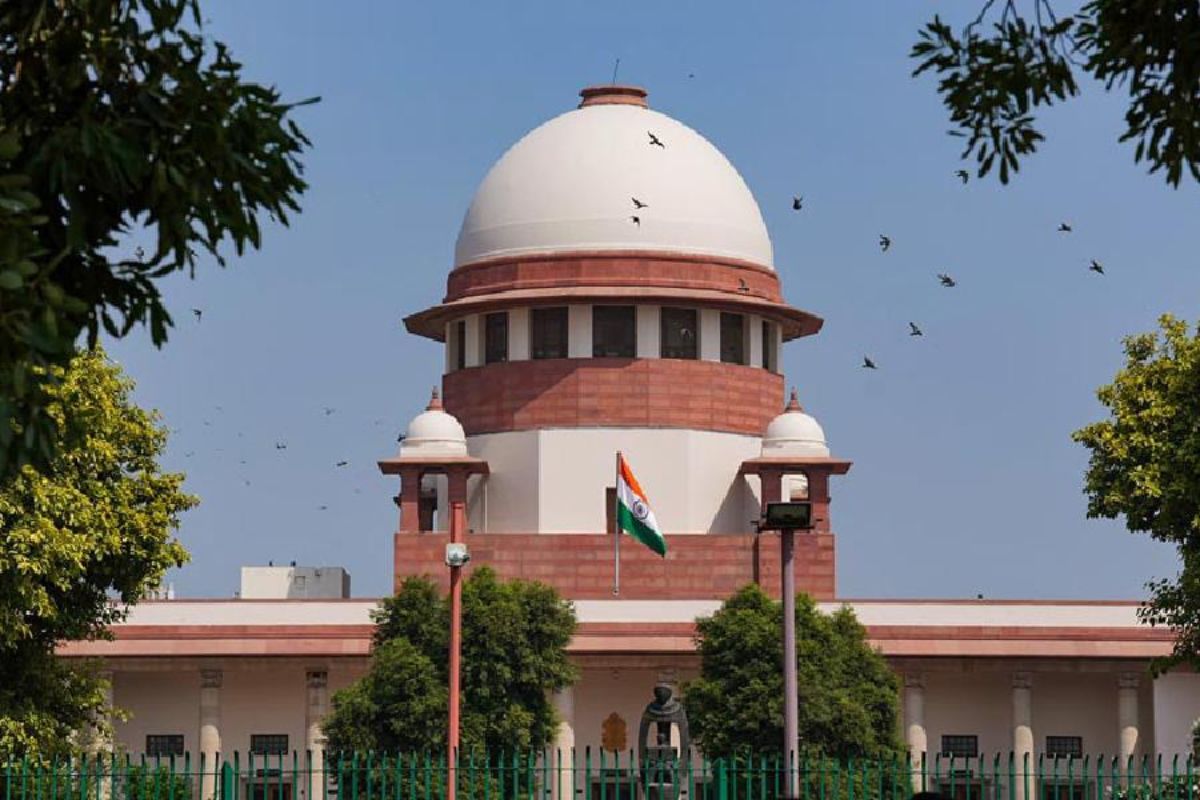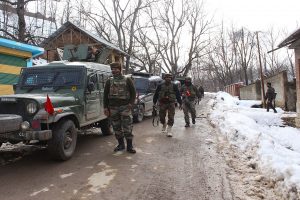The Supreme Court on Monday refused to interdict the ongoing delimitation exercise relating to the readjustment of State assembly and Lok Sabha constituencies in Assam by taking recourse to Section 8A of the Representation of Peoples Act, 1950 by the Election Commission of India.
Refusing to interfere with the ongoing exercise, Chief Justice DY Chandrachud heading a bench also comprising Justice JB Pardiwala and Justice Manoj Misra issued notice to the Centre and the Election Commission on a plea by the Assam leaders of nine opposition parties challenging the constitutional validity of the Section 8A of the Representation of Peoples Act that made special provision for the delimitation of constituencies in Assam, Manipur, Mizoram and Nagaland.
Advertisement
“At this stage when delimitation has commenced, having due regard to issuance of the draft proposal on June 20, 2023, it would not be proper to interdict the process at this stage. Hence, while reserving the constitutional challenge, we are not issuing any orders restraining the Election Commission to take any further steps,” the court said in its order.
The court gave three weeks to the Centre and the Election Commission to file their reply and two weeks to Assam based leaders of nine political parties to file rejoinder.
Apprehending that the after the top court nod for the ongoing delimitation exercise in Assam taking recourse to Section 8A of the RP Act, the Centre may repeat it in other States as well, senior advocate Kapil Sibal requested the Chief Justice Chandrachud to hold the hearing at the earliest.
Sibal appeared for the leaders of nine opposition parties.
CJI Chandrachud said that the matter will be taken up for the hearing after the hearing of the Delhi government’s challenge to the May 19 ordinance that ,while overcoming May 11 top court constitution judgment, vested in the Lieutenant Governor an overriding power on the transfer and posting of senior bureaucrats.
The top court constitution bench by its May 11 judgment had entrusted in Delhi government the power to transfer and post bureaucrats serving under it.
Going by the calendar of the matters listed before the constitution bench, the challenge to the constitutionality of Section 8A of the RP Act is unlikely to be listed soon. Starting from August 2, a top court constitution bench will hear the challenge to the abrogation of Article 370 of the constitution and the bifurcation of erstwhile State of J&K in two Union Territories. This is likely to go through the month of August.
This will be followed by Delhi government’s challenge to May 19 ordinance.
As senior advocate Kapil Sibal assailed the draft proposal for the conduct of delimitation exercise in Assam taking recourse to Section 8A of the RP Act, which was inserted by an amendment in 2008 – when the UPA government headed by then Prime Minister Manmohan Singh was in power – Solicitor General Tushar Mehta said that the provision is being challenged 16 years after it was incorporated in the RP Act, 1950.
Sibal said that the entire exercise being undertaken in Assam is contrary to the constitutional provision and the Delimitation Act as it envisages the delimitation commission to be headed by a sitting or a retired Supreme Court judge. He said that even in J&K, the delimitation commission was headed by a retired judge of the Supreme court.
He said that the delimitation exercise is always undertaken on the basis of population and the size of the constituencies is generally equal. But in the instant case of Assam, it is based on the density of the population.
On July 17, ten opposition leaders from Assam belonging to nine different political parties approached the Supreme Court challenging the draft proposal of the Election Commission of India (ECI) for the delimitation of Assam’s 126 assembly constituencies and 14 Lok Sabha constituencies.
“While the Constitution of India envisages an exercise whereby Constituencies are to be readjusted so as to ensure that all constituencies are comprised of an almost equal population, by relying on 2001 census figures, the Election Commission has created three categories of districts and has taken different yardstick for the three categories resulting in possible deviation of up to 33 per cent between the population of largest and smallest constituency,” the petitioner leaders have contended.
Petition says that delimitation for the rest of the country has been conducted by a high-powered body headed by a retired Supreme Court Judge and the same Commission was formed for Jammu & Kashmir as well.
“However, the provision of Section 8A discriminates against Assam and three North-Eastern States, for which the Election Commission has been prescribed as the authority to conduct delimitation,” states the petition.
The petitioner leaders belonging to Indian National Congress, Trinamool Congress, Nationalist Congress Party, Rashtriya Janata Dal , CPI, CPM, Assam Jatiya Parishad, Raijor Dal, and Anchalik Gana Morcha, have also challenged Section 8A of the Representation of People Act, 1950, which has been taken recourse to by the Election Commission in exercising its power in conducting the delimitation process.
The petitioner leaders who have approached the top court include Lurinjyoti Gogoi (Assam Jatiya Parishad), Debabrata Saikia (INC), Rokibul Hussain (INC), Akhil Gogoi (Raijor Dal), Manoranjan Talukdar (CPI(M)), Ghanakanta Chutia (Trinamool Congress), Munin Mahanta (CPI), Diganta Konwar (Anchalik Gana Morcha), Mahendra Bhuyan (Nationalist Congress Party), and Swarna Hazarika (Rashtriya Janata Dal).











